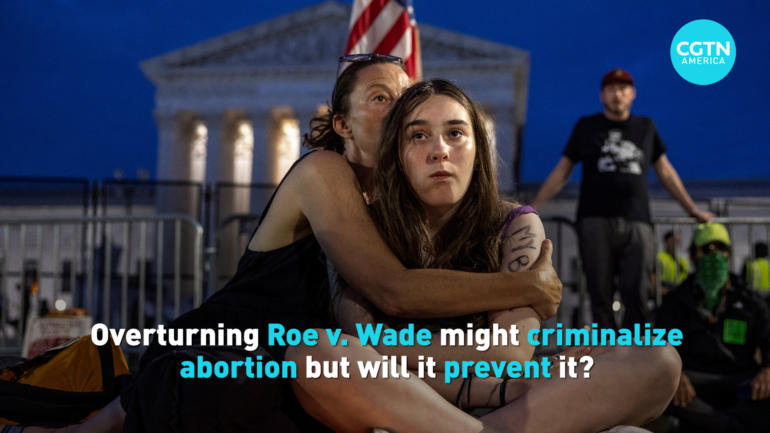On Friday June 24, the U.S. Supreme Court reversed the 1973 landmark ruling Roe v. Wade, eliminating the constitutional right to abortion and returning the issue to the states. As a result, some of these states have outlawed or increased limits on abortions.
Thirty states across the United States may ban or restrict abortions, while 20 other states and Washington, D.C. have laws protecting the right to abortions, according to an analysis from the Guttmacher Institute.
In light of the Supreme Court decision, President Joe Biden’s administration signaled that it would try to stop states from outlawing medical abortion drugs, beginning a significant new legal battle. One of the abortion drugs that can be used to safely abort pregnancies for up to 10 weeks, Mifepristone, is approved by the U.S. Food and Drug Administration. It could provide some relief for women seeking an abortion.
Currently, however, at least eight states have also banned abortion pill mifepristone, with legal risks for healthcare providers that offer this pill through telehealth to women living in these states, making it hard for women to manage their own abortion.
What options are available for women living in states that ban abortions?
Traveling to other states for the procedure
A Minnesota online clinic that provides abortion pills through telemedicine is establishing mobile abortion clinics in states where the procedure is permitted but borders those where it is prohibited or heavily restricted. Patients in this situation would travel across the border for a consultation before the medication gets shipped for pickup in the state where it is legal. However, it is still unknown if states that have outlawed abortions will make an effort to take legal action against these providers in other states.
Buying abortion pills online
Many companies mail abortion pills to the patient’s address without prescriptions or consultations. While they might not be FDA regulated, Plan C, an information campaign for abortion services, had many of these medications tested and found them to be real abortion pills.
Are women in states that ban abortions under legal risk?
Although pregnant women are not held legally responsible for an abortion in states that are poised to outlaw the procedure, there have been instances where local authorities have sought to charge women for having abortions even though the law forbids them. Meanwhile, there are guidelines surfacing for women who are seeking the abortion pill online that explain how to avoid leaving a digital footprint by using encrypted messaging apps, turning off the location on their devices, using a private browsing mode, and even letting go of health-tracking and period-tracking apps.
Overturning Roe V. Wade only proves that while safe abortions will become less accessible for millions of women across the United States, it will not stop them from seeking other ways to receive it, even if it might be a risk to their lives and health.
For more, check out our exclusive content on CGTN Now and subscribe to our weekly newsletter, The China Report
 CGTN America
CGTN America

